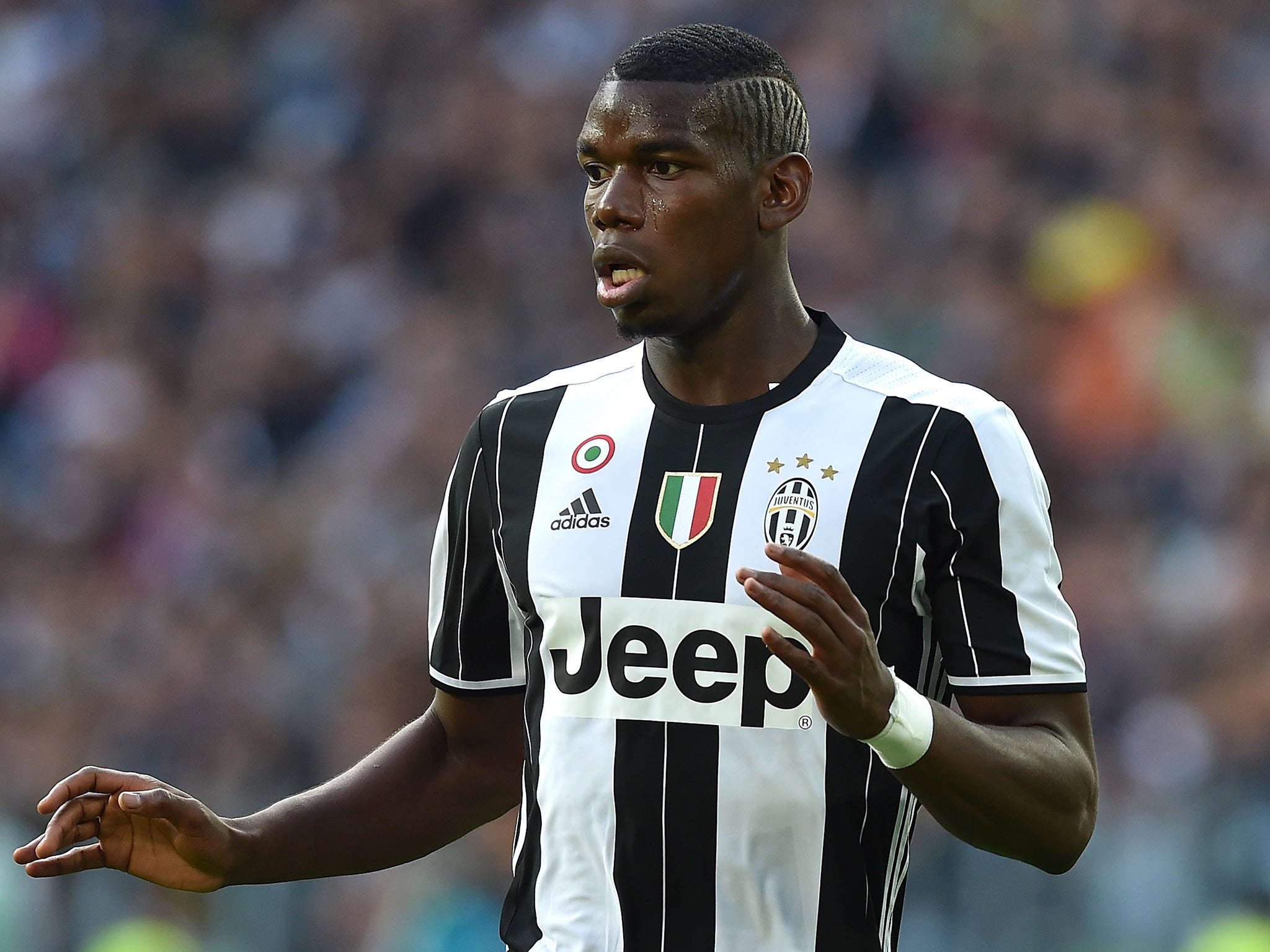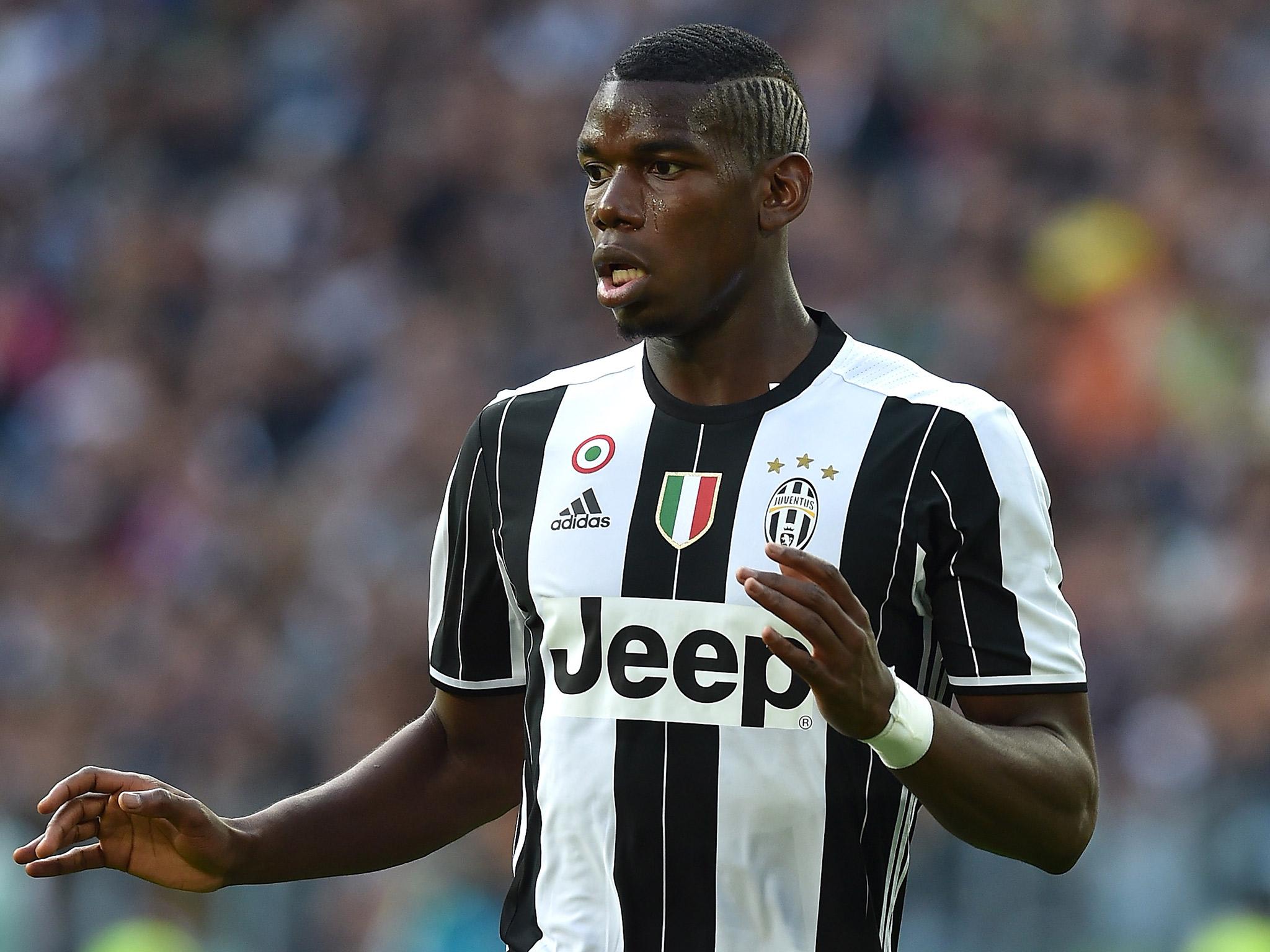Manchester United transfer news: How will Jose Mourinho use Paul Pogba?
When Paul Pogba completes his world-record move to Manchester United, Jose Mourinho will have to get the best out of him. But does the Portuguese coach work well with this generation of young players?

Your support helps us to tell the story
From reproductive rights to climate change to Big Tech, The Independent is on the ground when the story is developing. Whether it's investigating the financials of Elon Musk's pro-Trump PAC or producing our latest documentary, 'The A Word', which shines a light on the American women fighting for reproductive rights, we know how important it is to parse out the facts from the messaging.
At such a critical moment in US history, we need reporters on the ground. Your donation allows us to keep sending journalists to speak to both sides of the story.
The Independent is trusted by Americans across the entire political spectrum. And unlike many other quality news outlets, we choose not to lock Americans out of our reporting and analysis with paywalls. We believe quality journalism should be available to everyone, paid for by those who can afford it.
Your support makes all the difference.If there has been too much mediocrity, modesty and passivity about Manchester United in the last few years, at least there should be none of that this season. Both Jose Mourinho and Paul Pogba could each claim to be the most talented, intelligent, individualistic and talked-about man in his field and of his generation. And they will sink or swim at Old Trafford based on their relationship with one another.
If Mourinho can get the best out of Pogba then United have the prospect of a unique talent hitting his stride at Manchester United, which has not happened since Cristiano Ronaldo’s explosion 10 years ago. He could deliver the Premier League, help them towards the Champions League, and re-establish United’s place at the peak of the European game. In doing so Mourinho would prove himself to be still relevant, still powerful, even as he approaches his mid-50s.
The last six years of Mourinho’s career have brought that into question. His spell at Real Madrid and his return to Chelsea were more bad than good: one league title at each, no Champions League final, and with each third season spiralling into conspiracy theories, feuding, dark energy and what Michael Emenalo memorably called “palpable discord” with the players.
Part of the story of this diminishing of Mourinho is that he finds it harder to get through to the new generation of footballers, who only want the carrot and never the stick. And when Mourinho does spark a reaction out of them, it wears off too soon.
That happened at Real Madrid and at Chelsea, most obviously and significantly with Eden Hazard. In Mourinho’s first season back at Chelsea he needled Hazard, in what Mourinho calls “confrontational leadership”. The second season it paid off. Hazard won Footballer of the Year, and the Premier League for Chelsea. The third season Hazard grew disaffected, Mourinho’s methods stopped working, Hazard stopped scoring and Mourinho was sacked.
Pogba is two years younger than Hazard, even more gifted, even more emblematic of the new generation of footballers. Like most young players, he is obsessed by the prospect of winning the Ballon d’Or, and has spent his whole career telling friends how much he wants it. “His objective is the Ballon d’Or,” admitted his personal trainer, Didier Reiss, last year, “and he will leave no stone unturned to get there.”
This is a common attitude for talented players of Pogba’s generation, who have grown up in the era of Cristiano Ronaldo and Lionel Messi. But it is not how Mourinho sees football. Him and Arsene Wenger do not have much in common, except for a shared scorn for the increasing individualisation of what remains a team game. Mourinho is a unique individual and a brand in himself, but his football is resolutely collectivist.
“Football is losing a little bit the concept of the team, to focus more on the individual,” Mourinho bemoaned last year. “For me, football is collective. The individual is welcome if you want to make our group better. But you have to work for us, [it's] not [a case that] we have to work for you.”
When Pogba arrives at Carrington next month those are the terms that Mourinho will set him. The question will be what role he can find for Pogba to make the most of his once in a generation talent.
That was a task that Didier Deschamps could not do this summer at Euro 2016. Pogba’s successes for Juventus were on the left of a midfield three, whether in a Antonio Conte’s 3-5-2 or Max Allegri’s 4-3-3. But Deschamps started Pogba on the right of a three, moving him back into the middle of midfield in a 4-4-1-1 that was designed not for his benefit but for Antoine Griezmann.
Pogba may well start in a similar role for United, paired in a two alongside Michael Carrick or Morgan Schneiderlin. At Chelsea Mourinho played Nemanja Matic and Cesc Fabregas together there but they were sometimes exposed in the middle, which is anathema to a coach who demands control. That is why he moved towards playing two number 6s, Matic with either Jon Obi Mikel or Kurt Zouma, to give him that security he craved.
So Pogba will certainly have to do his share of defending in that role in a 4-2-3-1, and even then it is likelier for the easy games and home games than for harder ones. That is when Mourinho may go for what he describes as an “open triangle” in midfield, with a defensively-minded number 6 and then two number 8s, which was the plan he had in mind to combine Frank Lampard with Steven Gerrard, when Gerrard nearly joined Chelsea in 2005.

Pogba has almost suffered because of the versatility ensured by his range of talents. He is a futuristically complete footballer who idolises Cristiano Ronaldo's mastery of every skill in the game. That means that Pogba can play as a 6, 8 or 10. And it might be that that most attacking role, behind a striker, is where Mourinho feels Pogba can do the most damage. It is a job he only gives to players he truly trusts.
“For me a number 10 is a very special player in my team, he does a lot of things with and without the ball,” Mourinho said last November. “I like a number 10 to score goals. I like a number 10 to get in the box. He is an eight-and-a-half when the team loses the ball, and a nine-and-a-half when the team has the ball.”

Mourinho was making the point to Eden Hazard why Wesley Sneijder and Deco were his dream number 10s, in a way that Hazard could never be. If it was one last try to get a reaction out of him, it did not work. Mourinho was sacked three weeks later. He may well have similar plans for Pogba, we will find out next month. But Mourinho will need to keep him motivated for longer.
Join our commenting forum
Join thought-provoking conversations, follow other Independent readers and see their replies
Comments